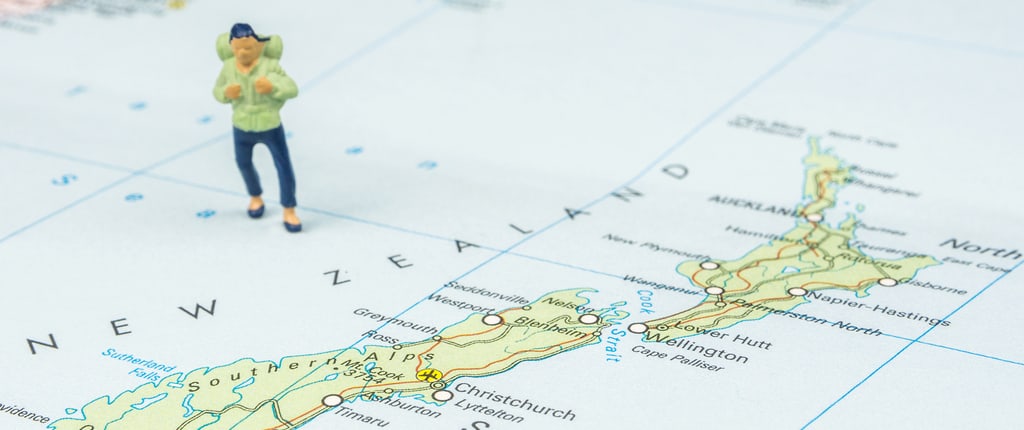The New Zealand Minister of Migration has announced a new change to the visitor visa. This change will be welcome by many as it would allow visitor visa holders to study up to six months. It will benefit people who wants to continue to study in New Zealand while waiting for a flight to depart New Zealand.
Eligibility
To be eligible for this extension, you must hold a valid visitor visa on 11 September 2020, and are currently in New Zealand.
What has changed?
Previously, visitors are only allowed to study on the visitor visa for up to three months. If a visitor intends to study more than three months, he/she would have to apply for a student visa or a variation of conditions on their visitor visa. However, with this new rule allow visitor visa holders to study for an extra three months.
This change is applicable to school- age students attending school as well as people studying short courses with education providers e.g. short-term English language courses.
What if you are granted a visitor visas after 11 September 2020?
This new update on the visitor visa is for people with a valid visitor visa on 11 September 2020. Therefore, if you your visa is granted after that date, you will only have the standard three months of study only.
How do I apply for this?
The immigration department will notify you if you are eligible for this new change.
What fees do visitors pay when they are studying in New Zealand?
Generally, visitors will have to pay international student fees when enrolling into a course in New Zealand. School-age students may not have to pay international fees if they meet the definition of domestic students. The Ministry of Education defines domestic students as:
- a New Zealand citizen; or
- the holder of a residence class visa granted under the Immigration Act 2009 who satisfies the criteria (if any) prescribed by regulations made under subsection (2); or
- a person of a class or description of persons required by the Minister, by notice in the Gazette, to be treated as if they are not international students.
Key changes to address primary sector skills shortage
The Government has just introduced some key visa changes to address pressing issues facing New Zealand’s seasonal primary sector.
Stranded former Recognised Seasonal Employer (RSE) workers who are still in New Zealand on flexible limited visas enabling to work part time and do non-RSE work, will be able to ‘re-enter’ the RSE Scheme and work for RSE employers in the horticulture and viticulture industries with 30 hours per week average pay guaranteed. (https://www.beehive.govt.nz/release/seasonal-work-visa-available-more-people)
Working Holiday Scheme visa holders who are in New Zealand with visas expiring between 1 October 2020 and March 2021, will be automatically granted Supplementary Seasonal Employment (SSE) visas.
This will allow them to work until 30 June 2021 in horticulture and viticulture seasonal roles where there are not enough New Zealanders available to do the work.
In addition, the Minister has announced new border closure exceptions for a limited number of veterinarians, deepsea fishing crew and agricultural and horticultural machinery operators. (https://www.beehive.govt.nz/release/more-border-exceptions-critical-roles)
Snapshot of the key RSE/SSE changes:
- Around 11,000 Working Holiday Scheme visa holders in New Zealand will be automatically granted SSE visas, allowing them the opportunity to work until 30 June 2021 in horticulture and viticulture seasonal roles.
- The expectation is that RSE workers will be prioritised for horticulture and viticulture roles; where an RSE worker has not been able fill a role, they will be able to be temporarily filled by an SSE visa holder. RSE employers will need to prioritise their RSE workforce before seeking to recruit an SSE visa holder.
- SSE visa holders will only be able to work in certain roles, for certain employers, in certain regions for certain periods of time.
- Those who do not wish to have an SSE visa automatically granted will need to lodge an application for a different appropriate visa, or leave New Zealand before their current visa expires. SSE Visas will not be automatically granted if there is already an application for another visa.
- Visitors, students and other work visa holders can apply for an SSE visa and will have the same work rights as those being granted by special direction.
Snapshot of the key exceptions changes:
- The Government has agreed to class exceptions for:
- Up to 30 veterinarians who are needed for large animal and livestock roles
- 570 people for up to 6 months as deepwater fishing crew
- Up to 210 experienced agricultural and horticulture machinery operators






National Innovation Visa – Victoria Criteria
Permanent Resident child born overseas
Australian child born overseas
National Innovation Visa – South Australia Criteria
Iran Visa Support – Australia